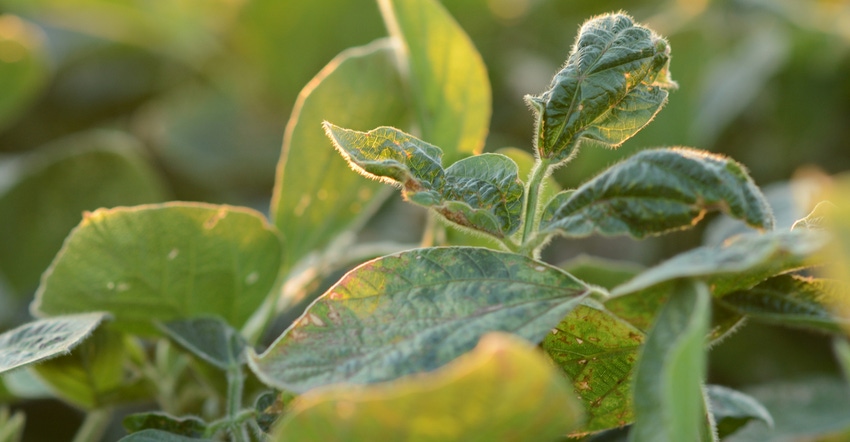
With a record 724 dicamba misuse complaints for the 2019 growing season, the Illinois Department of Agriculture announced new state-specific label requirements on Friday.
Next growing season, applicators will not be allowed to apply dicamba-based products after June 20, 25 days before the cutoff in 2019 for growers who planted their soybeans later than June 1. Applicators are also not allowed to apply dicamba if the temperature at the field, or the nearest available location in the National Weather Service forecast, exceeds 85 degrees F that day.
When asked if the department would be open to extending the deadline again in 2020 were late planting to arise again, Bureau of Environmental Programs Chief Doug Owens says, “I say never say never; it just depends on what happens. We did that last time around, but we’ll just have to see what the future will bring, as far as weather goes.
“Our intention with putting this restriction on the new state-specific label is to stick to that application cutoff,” he adds.
Owens says while the federal label requires producers to keep track of certain data, the new temperature restriction will not come with data-keeping requirements. If an off-target complaint is submitted by a neighbor, investigators in Owens’ office will be able to look back at the temperature forecast for the day.
The higher the temperature, the more likely dicamba is to volatilize.
“The whole purpose in putting these additional restrictions on those labels for the 2020 season is to try to do something to reduce the instances of off-target movement of those dicamba-containing compounds,” Owens says.
The label for 2020 also holds three carryovers from the 2019 version. They reinforce and clarify already standing federal regulations about consulting the FieldWatch sensitive-crop registry before applications and maintaining the label-specified downwind buffer between the last treated row and the nearest downfield edge of any Illinois Nature Preserves Commission site.
When asked when his office would be done investigating alleged dicamba misuse incidents, Owens says his staff has already gone out to photograph any damage on complainants’ properties.
“It took us till June last time, and with more complaints, it’s still going to take us a while,” Owens says. “Still, we learned from last season, and hopefully we’re a little more efficient.”
About the Author(s)
You May Also Like




